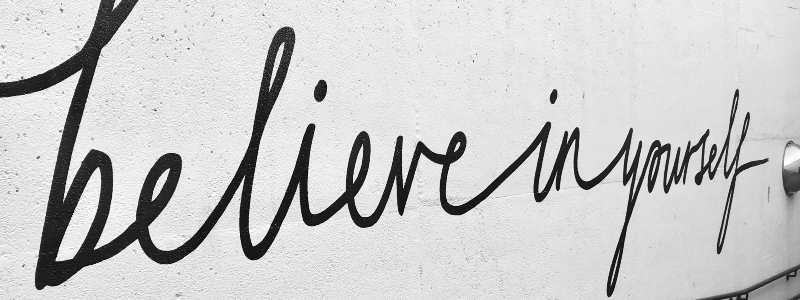This is a question that I am often asked. Everyone overthinks sometimes however for some people this can feel like a constant. Some people worry a lot about what others think of them, they can rehash conversations they’ve had, worry about what they’ve said and if they should have said this or that or whether they may have upset someone. Some people overthink making decisions and this can lead to immobilisation. Others think about worse case scenarios that could potentially happen.
This type of thinking is often accompanied with distressing images of possible disasters. Either way overthinking can be all consuming and have a significant impact on mood. Overthinking tends to fall into two categories, either rumination about the past or worry about the future. If we are ruminating on past, we are replaying situations or events in our mind or questioning decisions that we have made. Rumination is often linked to low mood and low self-esteem. Persistent worry thoughts involve negative predictions about the future, usually catastrophic, and often linked to anxiety.
Rumination and worrying can be seen as unhelpful behaviours. This is when we don’t consider the content, we try to change the behaviour. The content of the rumination and worry are the unhelpful thoughts and to work with these we use thought challenging. Ideally, we need to challenge both behaviours and thoughts to make a change. This is what CBT aims to do. Both worrying and ruminating can become habitual and so you don’t always recognise when you are doing it until you are well into a cycle. Increasing awareness is the first step. Really notice when you are getting into a worry or ruminative cycle. By increasing awareness, you can make an intervention to change sooner. Start to really try and notice when you are getting into these cycles. Usually there will be a shift in mood, either worry and anxiety or feeling low and depressed.
When you notice that you are ruminating or worrying, remind yourself that this is not productive, thinking in this way is only helpful if it leads to a positive action. Is what you are worrying about an actual problem or a hypothetical one? If it’s hypothetical or one that you have no control over, then a strategy that can be helpful is to really try and shift your focus of attention to something else and engage in the present. This might be doing something physical, such as gardening or exercise, or engaging in conversation, or doing an activity that you find really absorbing such as baking, creative arts, a word puzzle or Sudoku. It’s normal for your thoughts to try and hook you back in. Just notice that this is what is happening, don’t engage with the thought, let it go. Focus on the activity that you are doing, notice what’s going on in the here and now. It might help to think about what you can see, hear, smell, taste. You want to try and be truly present to your external surroundings. The principle of this strategy comes from mindfulness. You are doing something in a mindful way. This strategy can also be used for ruminating on the past. We can’t change the past, so it is not helpful to keep going over it. Often when we are ruminating, we are being self-critical and understandably this is going to negatively impact our mood. We can get stuck in cycles of worrying about the future or ruminating on past. We want to shift our focus of attention to the present and be truly present to the here and now.
It can be helpful to write worry thoughts down, to ‘park’ the worry. Then allocate yourself a limited period of time later in the day to come back to these worries and allow yourself to think about them. This is referred to as ‘worry time’.
If what you are worrying about is an actual problem or something that you do have control over, then you can problem solve. Consider all the possible solutions, pick one that you consider will be the most do-able and helpful, and devise an action plan. Once you have your plan of action decide if you can implement this right now or do you need to schedule it. This is a positive action and productive. Once you have implemented your plan you can let it go and shift your focus of attention.
When getting into lots of negative thoughts it can be helpful to thought challenge. Firstly, it can be useful to consider if you are getting into unhelpful thinking patterns such as mind reading, catastrophising, emotional reasoning, being self-critical, making judgements, black and white thinking, negative mental filter, shoulds and musts. If this is what you are doing, remember thoughts aren’t facts, even if they might feel that they are. Ask yourself, is there any factual evidence to support these thoughts or are they opinions? Would your evidence be permissible in a court of law? (This is the fact/opinion approach). You can also use the STOPP approach. STOPP is an acronym: Stop, Take a breath, Observe, Pull back and put in some perspective, Practise what works. Ask yourself is there another way of looking at this? What would your best friend say to you in this situation? What advice would you give to someone else in this situation? Will it matter in six months’ time? Answering these questions can help you to gain a different perspective, hopefully a more realistic one. Once you have a more realistic perspective you can test this out by doing something different, consider what would be more helpful to you at this time and is it in line with being the person you want to be.
These are different CBT strategies used to manage overthinking. Change is difficult and takes time.
It’s a challenge. As with anything, these strategies will take practice. They may not always work and that’s okay too. Often, we are trying to change a way of being that has been around for a long time, so it is important to try and be gentle with yourself. Remember, you’re not alone, overthinking is something we can all do.
Brighton and Hove Psychotherapy is a collective of experienced psychotherapists, psychologists and counsellors working with a range of client groups, including fellow therapists and health professionals. If you would like more information, or an informal discussion please get in touch. Online therapy is available.












